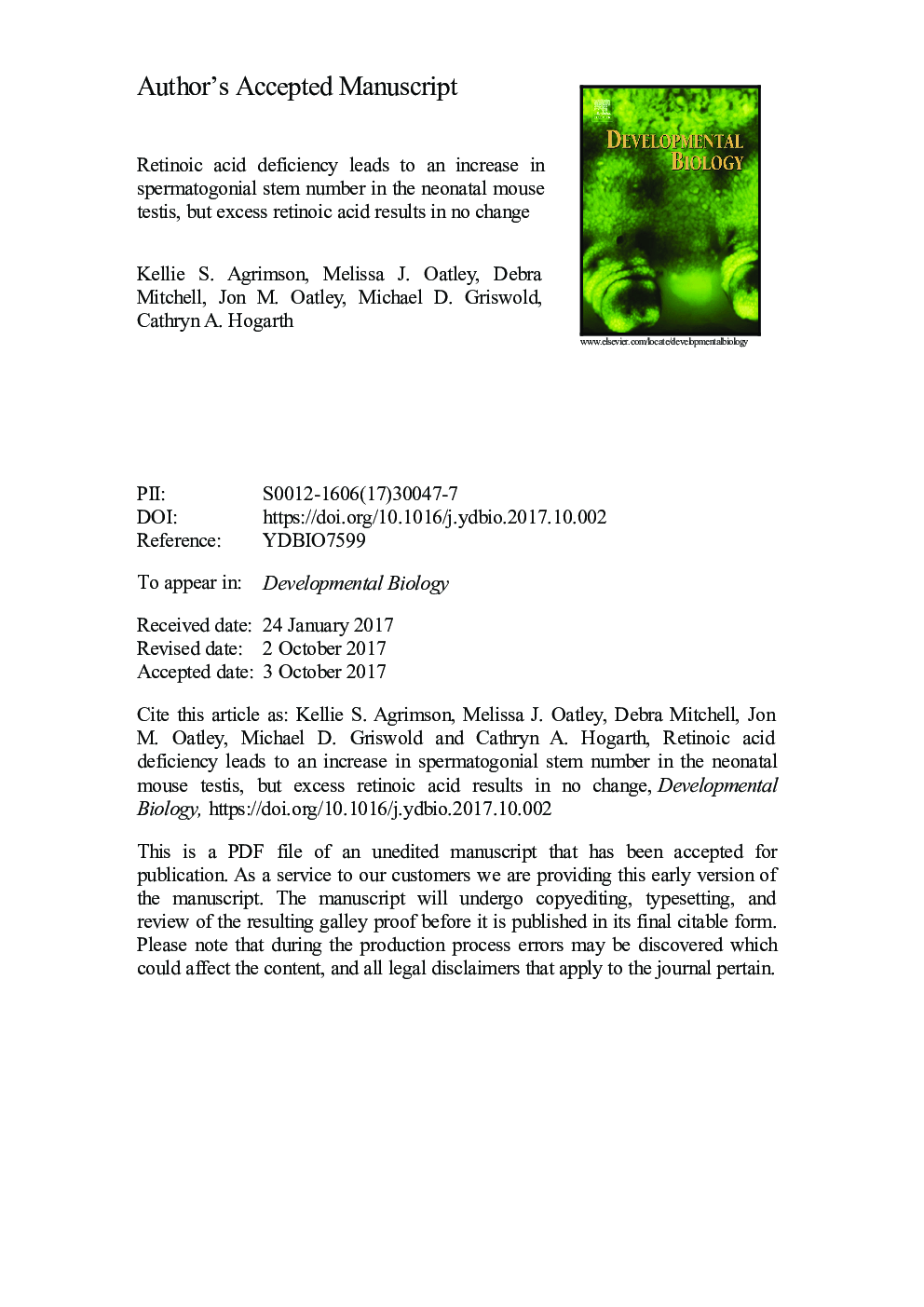| کد مقاله | کد نشریه | سال انتشار | مقاله انگلیسی | نسخه تمام متن |
|---|---|---|---|---|
| 8467717 | 1549558 | 2017 | 25 صفحه PDF | دانلود رایگان |
عنوان انگلیسی مقاله ISI
Retinoic acid deficiency leads to an increase in spermatogonial stem number in the neonatal mouse testis, but excess retinoic acid results in no change
ترجمه فارسی عنوان
کمبود رتینوئیک اسید منجر به افزایش تعداد ساقه اسپرماتوگونیال در بیضه موش نوزاد می شود، اما اسید رتینوئیک اضافی بدون تغییر است
دانلود مقاله + سفارش ترجمه
دانلود مقاله ISI انگلیسی
رایگان برای ایرانیان
کلمات کلیدی
اسید رتینوئیک، اسپرماتوژنز، تست، سلول بنیادی اسپرماتوگونال،
موضوعات مرتبط
علوم زیستی و بیوفناوری
بیوشیمی، ژنتیک و زیست شناسی مولکولی
بیولوژی سلول
چکیده انگلیسی
The onset of spermatogenesis occurs in response to retinoic acid (RA), the active metabolite of vitamin A. However, whether RA plays any role during establishment of the spermatogonial stem cell (SSC) pool is unknown. Because designation of the SSC population and the onset of RA signaling in the testis that induces differentiation have similar timing, this study asked whether RA influenced SSC establishment. Whole mount immunofluorescence and flow cytometric analysis using the Id4-eGfp transgenic reporter mouse line revealed an enrichment for ID4-EGFP+ cells within the testis following inhibition of RA synthesis by WIN 18,446 treatment. Transplantation analyses confirmed a significant increase in the number of SSCs in testes from RA-deficient animals. Conversely, no difference in the ID4-EGFP+ population or change in SSC number were detected following exposure to an excess of RA. Collectively, reduced RA altered the number of SSCs present in the neonatal testis but precocious RA exposure in the neonatal testis did not, suggesting that RA deficiency causes a greater proportion of progenitor undifferentiated spermatogonia to retain their SSC state past the age when the pool is thought to be determined.
ناشر
Database: Elsevier - ScienceDirect (ساینس دایرکت)
Journal: Developmental Biology - Volume 432, Issue 2, 15 December 2017, Pages 229-236
Journal: Developmental Biology - Volume 432, Issue 2, 15 December 2017, Pages 229-236
نویسندگان
Kellie S. Agrimson, Melissa J. Oatley, Debra Mitchell, Jon M. Oatley, Michael D. Griswold, Cathryn A. Hogarth,
